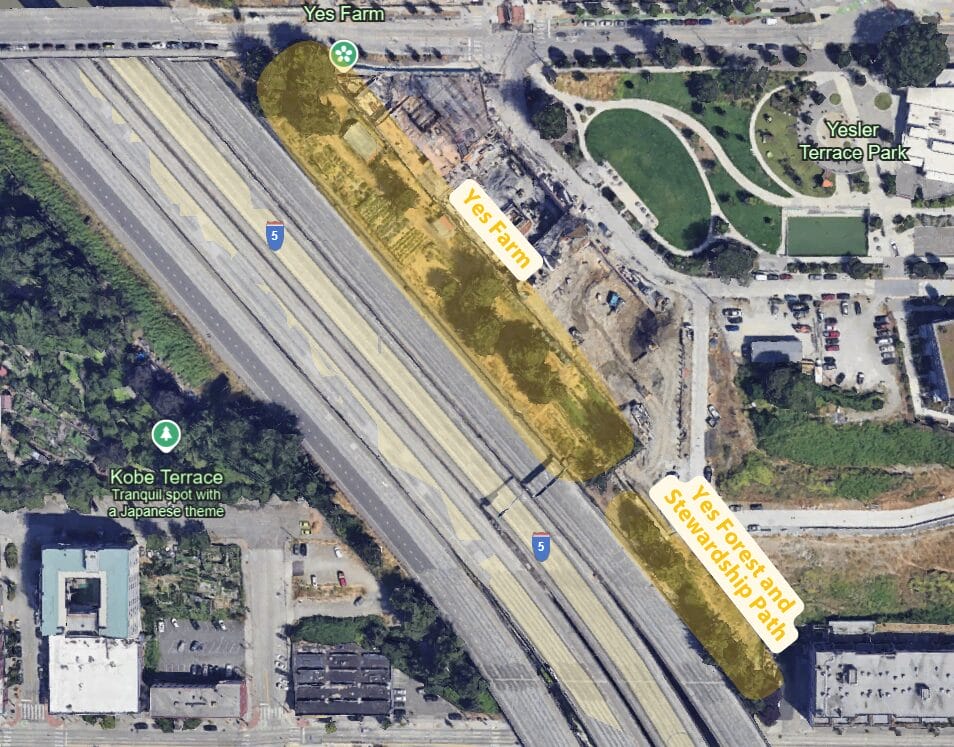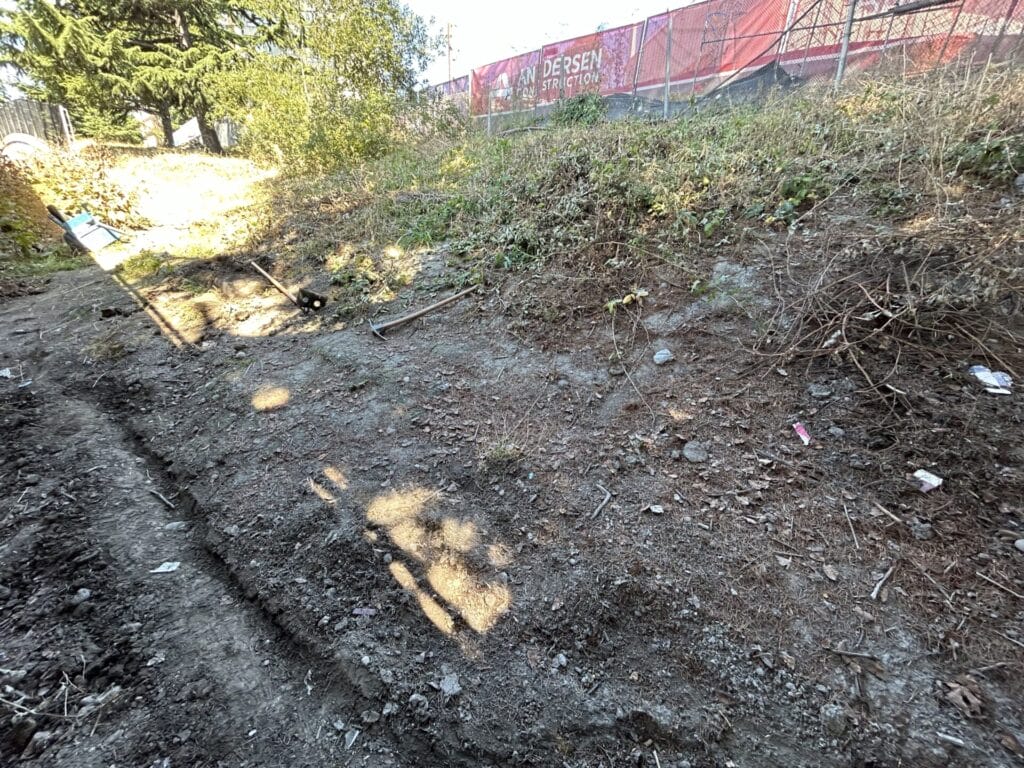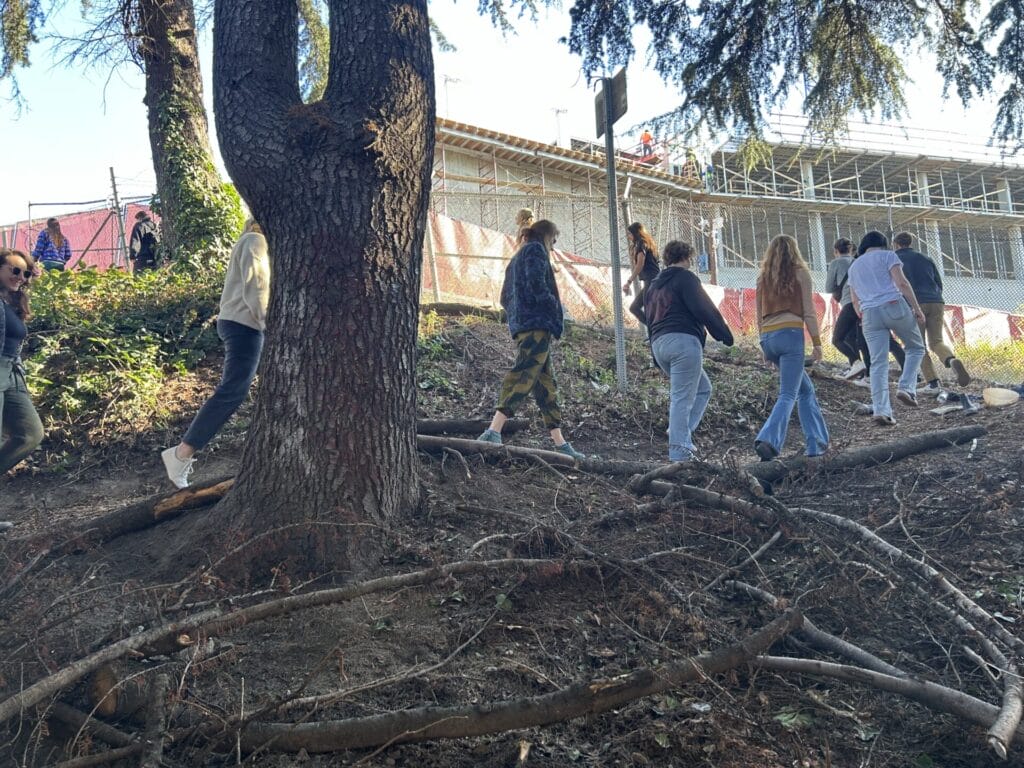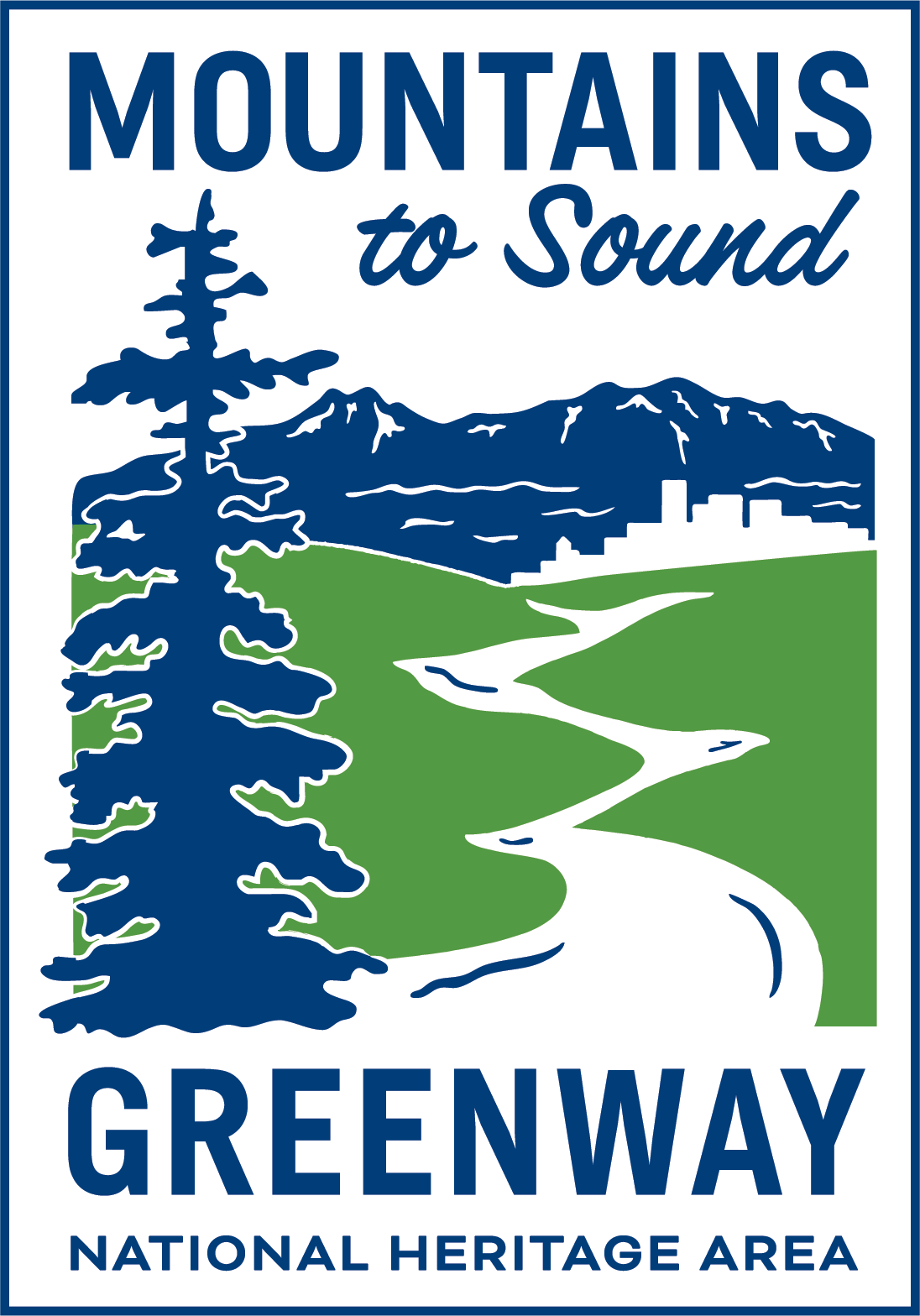Creating Yes Forest: A Pathway to an Urban Farm in Seattle
A unique green space is transforming a slice of freeway right-of-way in Seattle, connecting the Chinatown-International District with stewardship opportunities on an urban farm lined with an abundance of vegetables not typically seen in the milieu of urban life.
The 1.5-acre stretch of land is flanked by a fast-moving, noisy freeway and is one of the few natural spaces available in an area that was historically redlined and systemically disenfranchised through racist policies. While these diverse communities were knit together by these issues, they were later split by the construction of Interstate 5 in the 1960s. Today, they face gentrification and a lack of places where they can connect to nature.

To meet the needs of this historically underrepresented community, a partnership between the Black Farmers Collective, the Seattle Housing Authority, the Mountains to Sound Greenway Trust, and EarthCorps was formed to expand Yes Farm. Together, they envisioned and created a new kind of community-driven natural space, one that would nourish both the land and the people.
Empowering Marginalized Communities Through Farming and Stewardship
This effort began with Yes Farm, where individuals and families found a place to grow their own food, reconnect with the earth, and cultivate community.
Back in 2018, when the Seattle Housing Authority was developing Yesler Terrace, they collaborated with the Washington State Department of Transportation (WSDOT) to create a five-year lease to activate the green space east of I-5 with an urban farm. After responding to their request for proposals, Ray Williams secured the space for the project and co-founded the Black Farmers Collective, a Black-led cooperative network of food systems with a mission of creating liberation, healing, and joy through food sovereignty. Through this collective, Ray began creating what would become Yes Farm, a place for marginalized communities to grow their food and build a community outside together.
The Black Farmers Collective began creating curriculums with several organizations like Seattle University to support sustainability lessons and facilitate food system education for high-school-aged youth. They have also done soil, air quality, and environmental sound testing to learn ways they can mitigate some of the challenges that come with building an urban green oasis next to a highway. As Yes Farm began to take shape through education programming, the Black Farmers Collective obtained its own 501(c)3 status. Over the years, they built out the urban farm in partnership with EarthCorps’s Partnerships Director Miguel Raimilla to create a greenhouse and a multitude of raised beds powered by grants.
Yes Farm’s Expansion: Building a Path to Community Engagement
After Yes Farm ended its first five-year contract with the Seattle Housing Authority in 2023, the Black Farmers Collective, The Seattle Housing Authority, and WSDOT negotiated an extended lease to farm the land, with a 9,000-foot expansion into the southern part of the green space.

As this initiative grew, it evolved into something even larger—Yes Forest, a tree-filled area that invites people to walk among native plants along a new trail called the Stewardship Path. Here, the community is encouraged not only to farm and care for the land but to engage in the stewardship of native plants that have long belonged to this place. Yes Forest serves as a bridge—physically connecting neighborhoods while connecting people to the land’s history and to one another.
As EarthCorps spearheaded plans to clean up the space, Ray partnered with the Greenway Trust to craft a model for community-driven projects at Yes Farm.
“When you have a vision, you can see where it is, but you don’t necessarily have a path,” says Ray. “The Greenway is helping to show that path of what this could look like.”
In 2023, a vision for a path towards stewardship began to take shape. To activate the expanded space, Greenway Trust Community Partnerships and Projects Manager Chris Liu and Restoration Coordinator Rosie Llewellyn worked with Ray to build a path rooted with native plants chosen by the community. The Stewardship Path, designed by Greenway Trust Recreation Manager Mike Stenger, guides community members through Yes Forest to the farm, transforming a steep, direct path into a gentle, winding switchback.
The area where this path sits had previously seen issues like encampments, biohazards, garbage, invasive plants, and fires. With a grant from King County Conservation District, EarthCorps renewed the hillside connecting Yes Farm and South Jackson Street in preparation for the Stewardship Path, and they will continue to develop this path throughout the end of 2024.
The original path was created by travelers and unhoused people moving through the right of way before it became Yes Farm. Ray has worked to engage with unhoused individuals who continue to use the area to create a safe environment centered around respect and sharing the area. The goal is for Yes Farm and Yes Forest to serve as a community hub, urban farm, and green space for the surrounding neighborhoods, which have limited access to nature.


Building the Pathway to Sustainable Futures
To give the surrounding community autonomy in the restoration happening in Yes Forest, The Black Farmers Collective and the Greenway Trust created a community celebration for people to come and vote for medicinal and edible plants that they can help tend as the project moves forward. The summer celebration welcomed dozens of people with food, drinks, and an opportunity to connect on an August afternoon. Participants selected from a list of native plants that will thrive in the varying light conditions and soil types that are present in the expanded space to create an ecologically sustainable space. New-comers and community members who actively use the space to farm dreamed about future uses for the farm. They discussed the importance of having more raised beds that can feed the surrounding community and dreamed of more opportunities to harvest edibles from Yes Farm and Yes Forest.
Looking ahead, the team hopes to continue expanding the project, potentially incorporating more of the freeway right-of-way area, and working to engage other community organizations in the Chinatown-International District. They see the site as an opportunity to create a unique “green gem” that can bring different communities together around a shared commitment towards sustainability and stewardship.
If you would like to learn more about habitat restoration and become part of the solution, visit this page to sign up for an upcoming volunteer event!





